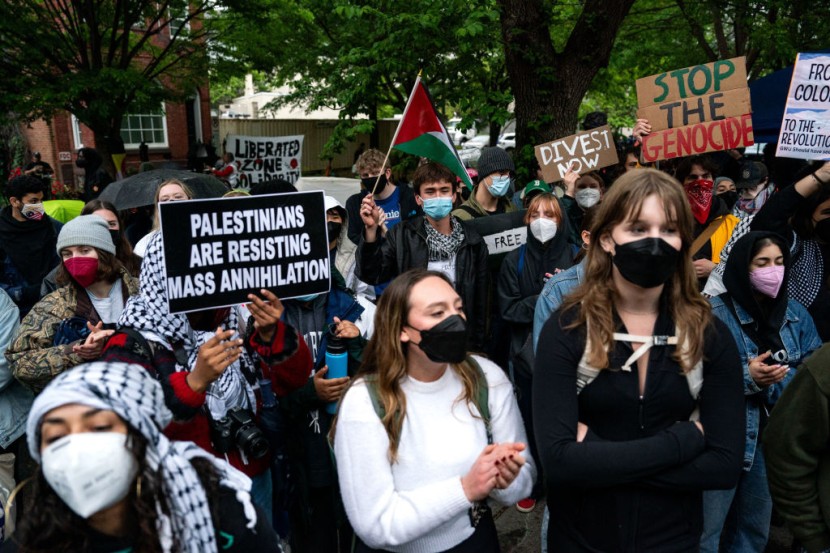
Despite the numerous calls that universities and police should crack down on pro-Palestinian campus protesters, only 3% of the demonstrations have resulted in any significant physical harm or property damage, according to the findings of a new study cited by the Guardian.
An analysis of 553 pro-Palestinian protests between 18 April and 3 May found that 97% of them did not cause serious damage, to statistics from the Armed Conflict Location and Event Data project (ACLED).
Fewer than 20 of the protests resulted in any serious interpersonal violence or property damage, reported the independent nonprofit organization.
In the same period, ACLED documented at least 70 instances of police action against the protesters that included arrests, use of chemical agents, batons and other kinds of physical force.
Nearly half of the campus protests that ACLED categorized as violent involved protesters fending off law enforcement during police intervention.
The report cited two instances of serious property damage: protesters at Portland State University who broke glass and damaged furniture and computers while occupying a campus library, and Columbia University protesters who broke windows during their occupation at a campus building, furing their takeover of a campus building.
Both events occurred April 30.
Graffiti or other use of spray paint was not considered "indicative of a violent demonstration," said Kieran Doyle, ACLED's North America research manager.
© 2025 HNGN, All rights reserved. Do not reproduce without permission.









